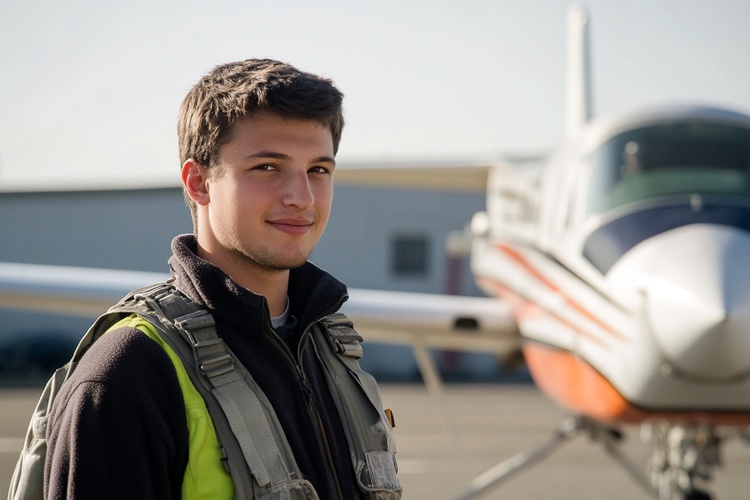Unlocking the Skies: A Comprehensive Guide to Drone Pilot Training
In recent years, the demand for skilled drone pilots has soared across various industries, from agriculture to filmmaking. As technology advances and regulations evolve, proper training has become essential for those looking to navigate this exciting career path. This article explores the world of drone pilot training, offering insights into why it's a promising career choice, what training programs entail, and the certifications required to fly legally and professionally.

Why Consider a Career as a Drone Pilot?
The drone industry is experiencing rapid growth, with applications expanding beyond hobbyist use. Commercial drone pilots are in high demand across sectors such as real estate, construction, and emergency services. The versatility of drone technology means that skilled pilots can find diverse and rewarding work opportunities. Moreover, the potential for innovation and the dynamic nature of the field make it an attractive option for those seeking a cutting-edge career.
What Skills Do Successful Drone Pilots Need?
Successful drone pilots combine technical prowess with creativity and problem-solving abilities. Proficiency in operating various drone models is crucial, but equally important are skills like spatial awareness, photography, and videography. Understanding weather patterns, aviation regulations, and risk assessment are also vital. Soft skills such as communication and attention to detail round out the profile of a competent drone pilot.
What Do Drone Pilot Training Programs Typically Offer?
Comprehensive drone pilot training programs cover a wide range of topics to prepare students for professional flight operations. These typically include:
-
Flight basics and advanced maneuvers
-
Drone maintenance and troubleshooting
-
Aerial photography and videography techniques
-
Understanding airspace regulations and flight restrictions
-
Mission planning and risk assessment
-
Data processing and analysis
Many programs also offer hands-on flight experience with various drone models, ensuring students are comfortable with different equipment they may encounter in their careers.
How Long Does It Take to Become a Certified Drone Pilot?
The duration of drone pilot training can vary significantly depending on the program’s intensity and the level of certification sought. Basic courses may take just a few weeks, while more comprehensive programs can span several months. For example, preparing for the FAA Part 107 exam in the United States typically requires 15-20 hours of study. However, gaining proficiency and building a professional portfolio often takes additional time and practice beyond initial certification.
What Certifications and Licenses Are Required for Drone Pilots?
Certifications and licensing requirements for drone pilots vary by country and the intended use of the drone. In the United States, commercial drone pilots must obtain a Remote Pilot Certificate by passing the FAA Part 107 exam. This certification covers regulations, operating requirements, and safety procedures. Other countries have similar requirements, such as the UK’s PfCO (Permission for Commercial Operation) or Canada’s Advanced RPAS Certificate.
Where Can You Find Reputable Drone Pilot Training Programs?
Selecting the right training program is crucial for aspiring drone pilots. Here’s a comparison of some well-known drone pilot training providers:
| Provider Name | Services Offered | Key Features/Benefits |
|---|---|---|
| DARTdrones | FAA Part 107 Prep, Hands-on Flight Training | Nationwide locations, Industry-specific courses |
| Drone Pilot Ground School | Online Part 107 Test Prep | Self-paced learning, High pass rate |
| UAV Coach | Part 107 Training, In-person Flight Training | Comprehensive study materials, One-on-one instruction |
| Embry-Riddle Aeronautical University | Professional UAS Operator Program | University-level education, Advanced topics covered |
| DJI Academy | Product-specific Training, General Flight Skills | Focus on DJI products, Global availability |
Prices, rates, or cost estimates mentioned in this article are based on the latest available information but may change over time. Independent research is advised before making financial decisions.
When choosing a program, consider factors such as accreditation, instructor experience, course content, and hands-on flight time offered. Many programs also provide job placement assistance or networking opportunities, which can be invaluable for launching your career as a drone pilot.
In conclusion, drone pilot training is a gateway to an exciting and rapidly evolving field. With the right education, certifications, and skills, aspiring pilots can position themselves for success in this high-tech industry. As drone applications continue to expand, the demand for qualified pilots is likely to grow, making it an opportune time to consider this career path.




